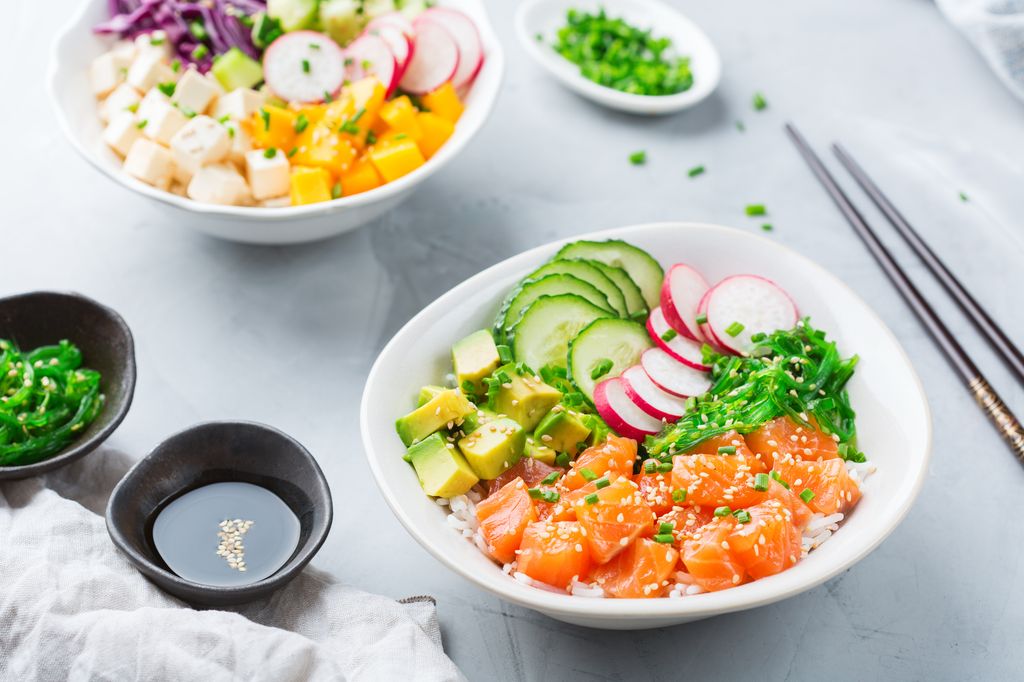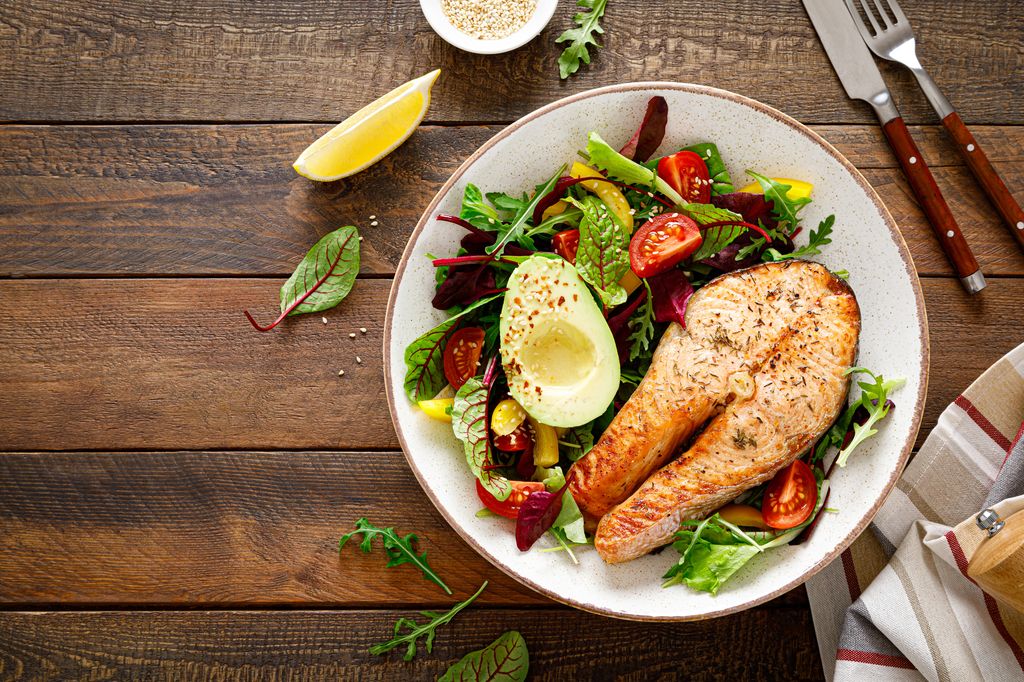You might not realise it but your brain is hungry for the right nutrients to boost memory, improve concentration and promote healthy aging. Want to feed it what it craves? Consider the MIND diet, an eating plan specifically designed to protect your brain. Dietitian Paloma Quintana explains, "If I had to sum up what the MIND diet is, I'd say it's simply 'healthy eating' - but with special attention to cognitive health." The much-studied nutritional model combines the best of the Mediterranean diet, anti-inflammatory diets and the DASH diet - the famed dietary plan for hypertension - with an aim to help protect the brain in both the medium and long term.
Quintana insists that the MIND diet isn't a "diet" in the strictest sense. It's instead an approach to eating where you focus on natural foods and nutrients that have a positive impact on brain function. "It's called a 'diet' but ultimately we're talking about eating well: fruits, vegetables, quality fats, small oily fish, eggs, nuts, grass-fed meat and full-fat dairy."
The MIND diet vs the Mediterranean diet
So how exactly does the MIND diet differ from the Mediterranean diet? "The Mediterranean diet, as it was conceived, included some things that we see much less of today - slow cooked seasonal products served in sit-down family meals - and it also included quite a bit of red meat. The MIND diet, on the other hand, is much more specific in terms of the foods that are considered 'brain protective'," explains Quintana.
The MIND diet focuses on very specific foods: "Red berries for their polyphenol content, green leafy vegetables and oily fish rich in omega-3." Essentially, there's a focus on fresh, minimally-processed foods that provide antioxidants and healthy fats.
Other beneficial meals for your brain include seafood - like shellfish, which provides omega-3s, cholesterol and zinc. Eggs are also essential for brain health due to their high choline content.
The MIND diet combines the best facets of the Mediterranean diet, anti-inflammatory diets and the DASH diet
The centrepiece of the MIND diet: Omega-3
Omega-3 is a healthy fat that's essential in the MIND diet, but it can be confusing because there are several types to choose from. "The ones that truly protect your memory are marine omega-3 fatty acids, especially DHA, which can be found in smaller fresh fish," says the nutritionist. Also recommended: mackerel, sardines, anchovies and herring. "These foods, rich in two types of Omega-3 - both EPA and DHA - are fundamental for the structure and functioning of the brain," she confirms.
Foods that are bad for your brain
Thinking in terms of "brain-protective" foods also forces us to think about foods and ingredients that can help lead to cognitive decline. The list is just as extensive. "Ultra-processed foods, refined vegetable oils, oxidised fats and products that combine white flour, sugar and high fat are ticking time bombs for brain health. There are studies that link excessive consumption of sugars and refined flours with a higher risk of Alzheimer's, a disease which [in non-clinical terms] has been dubbed 'Type 3 diabetes'," she warns.
Products like white bread, refined pasta, pastries and biscuits should be left off of our shopping lists. "We're not just talking about obvious granulated sugar, but also about the sugar that is hidden in many everyday foods." She also reminds us that every time we see sunflower oil, canola oil or vegetable fats on a label, that should raise a red flag.
Some foods, from ultra-processed treats to refined sugars, are a ticking time bomb for brain health
Fats: enemy or ally?
Another aspect we need to clarify when talking about brain-healthy food is that consuming "good" fat is actually fundamental. "Saturated fat has been demonised a lot, but the fat that is naturally present in foods like aged cheeses, quality meats or eggs can also be healthy," Quintana states. What's dangerous, she adds, isn't the fat itself, but the industrial processing of it: "Hydrogenated or laboratory-modified fatty acids are harmful." In contrast, fats from oily fish, avocado, coconut oil or extra virgin olive oil is a plus.
Do you have to be strict when following the MIND diet?
The nutrition expert has some good news: we should be realistic about expectations, and not feel like we need to strictly adhere to the diet's guidelines. "Even if you can't follow the MIND diet perfectly, you'll still see benefits," she says. "Simply adding more brain-protective foods and cutting back on the most harmful ones is a huge step in the right direction."
She notes: "People sometimes justify eating unhealthy foods with the excuse, 'The diet won't work anyway if I don't follow it perfectly.' Instead, it's better to ask: Why eat something you know will harm you? Why not find enjoyment in delicious foods that also nourish your body?"
'Put your mobile on airplane mode from time to time, turn off Wi-Fi at night, organise your routines. Those are all also good for your brain'
Other habits to protect your brain
Brain health doesn't just depend on what we eat. "While diet is crucial, it's not everything. We also need to get enough rest, sunlight and exercise, as well as take care of our mental and emotional health and our relationships," the expert reminds us. For example, regulating your circadian rhythm by going out into natural light during the day when you can will help. Avoid screens at night, and limit the use of electronic devices in general. "Put your mobile on airplane mode from time to time, turn off Wi-Fi at night, organise your routines. All that is also good for your brain."
It's important to remember that each and every one of our actions can help contribute to a healthier brain. "Having a purposeful, organised life and taking care of our emotional health influences the brain just as much as what we eat," she says. "In the end, it all adds up."
References:
Cherian, L., Wang, Y., Fakuda, K., Leurgans, S., Aggarwal, N., & Morris, M. (2019). Mediterranean-Dash Intervention for Neurodegenerative Delay (MIND) diet slows cognitive decline after stroke. Journal of Prevention of Alzheimer's Disease, 6(4), 267–273.
Vu, T. H. T., Veeranki, S. P., Alvarado, C., Ma, D., & Chen, L. (2022). Adherence to MIND Diet, Genetic Susceptibility, and Incident Dementia in Three US Cohorts. Alzheimer's & Dementia, 18(12), 2542–2553.











